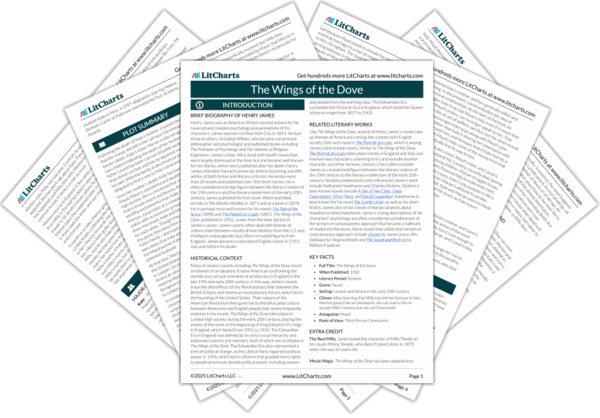The fact that Lionel has been cast out of society explains in part why the financial burdens of the family have fallen on Kate’s shoulders. The novel then suggests that because both Lionel and Marian have no way of making money, they are dependent on Kate to bring in money for the family. Notably, Kate hasn’t distanced herself from Lionel, even though he purportedly did something “wicked” in the past that caused the rest of the world to turn on him. Instead, Kate sticks up for Lionel, pointing to Kate’s sense of filial loyalty.
